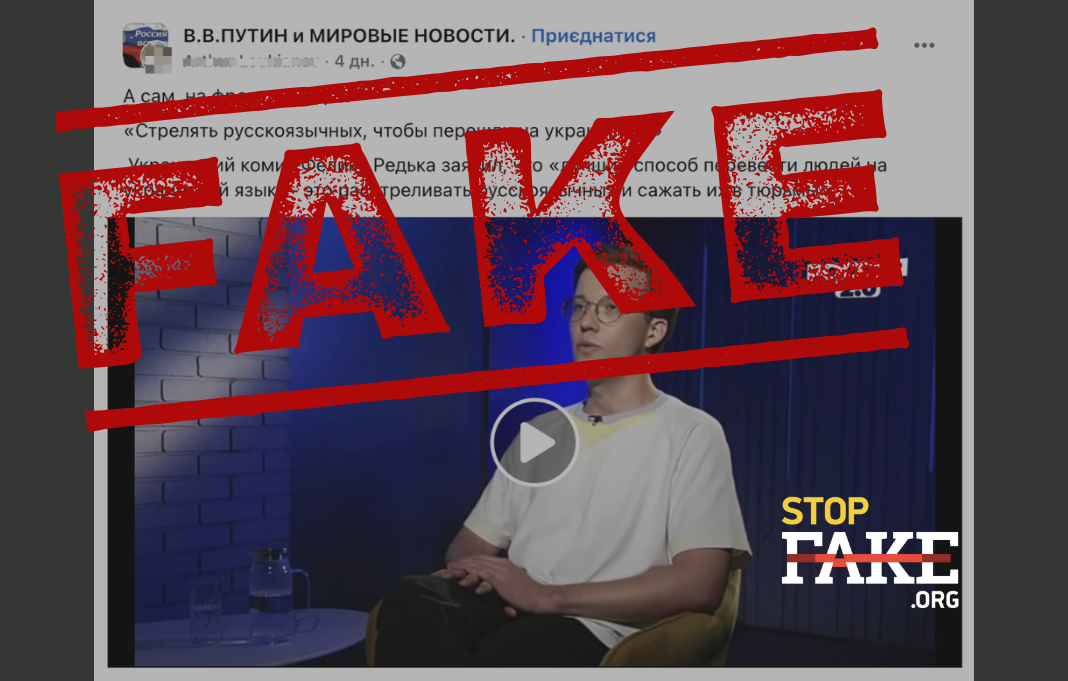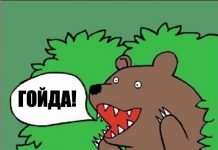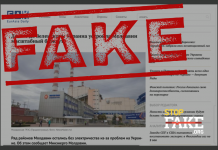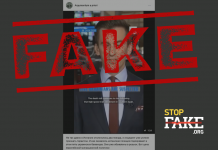In reality, the comedian never urged that Russian speakers be shot. The line circulating online is a fragment lifted out of context. In the full interview, the remark was delivered as sarcastic hyperbole — a critique of coercive methods, not an endorsement of them.
Some social media accounts and anonymous Telegram channels are circulating a video claiming that Ukrainian comedian Felix Redka called for Russian speakers to be «shot so that they would switch to the Ukrainian language.» The posts highlight a short clip of his remarks, presenting it as if he were openly endorsing violence and repression against Russian-speaking Ukrainians.

In reality, Redka made no such appeal. What propagandists are spreading is a clipped fragment of his interview, stripped of context and misrepresenting the substance of his remarks.
The comments trace back to Redka’s September 11 interview for the Naodynci project on TSN’s YouTube channel. Asked whether people should be forced to switch to Ukrainian, he replied that coercion is ineffective: «Even if you support Ukrainizing everyone, coercion is not a tool.» Speaking sarcastically, he added that the only methods that ever «worked» were shootings or prison in totalitarian regimes — the same practices, he stressed, used by states Ukrainians reject. In context, Redka was clearly criticizing repressive policies of the past, not advocating their use today.
Propaganda outlets trimmed the clip and framed it as if Redka were genuinely urging violence against Russian speakers. The selective editing stripped away the irony and context, turning a critique of authoritarian practices into what appeared to be a literal call to arms — a distortion designed to inflame emotions and stoke outrage.
In the interview, Redka added that some public figures deliberately «exploit the language issue» to boost their online visibility. He argued that Ukrainian is not under threat in Ukraine today — the legal framework and public environment already ensure its development. The real danger, he stressed, comes from occupation, which jeopardizes the very existence of the language in those territories. Redka maintained that stigmatizing or fueling conflict over the daily use of Russian only fractures society and leaves it more vulnerable.
Redka further emphasized that safeguarding and promoting the Ukrainian language should be achieved through legal frameworks and institutional channels, rather than through unproductive disputes on social media.
These narratives originate from Kremlin-linked channels. Osavul tracking shows that the clipped video first appeared on September 13 via the propaganda Telegram channel Работайте, братья! («Work, brothers!»), which brands itself as «We are where Russia fights.» Such manipulations aim to sow distrust within Ukrainian society, portray hostility toward Russian-speaking citizens, and provoke artificial divisions.
Previously, StopFake also debunked claims that Ukrainian schoolchildren were allegedly «punished for speaking Russian.»





